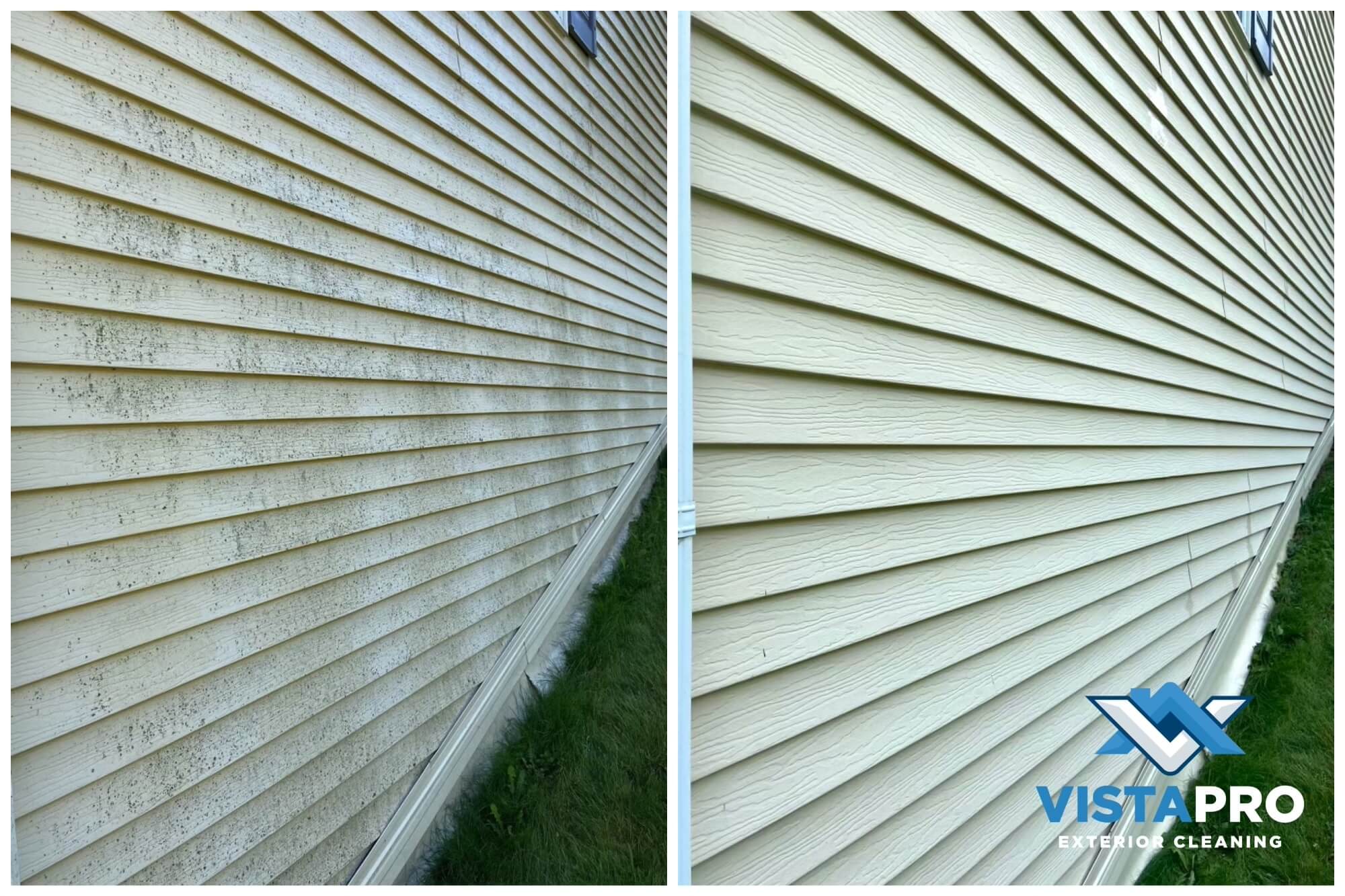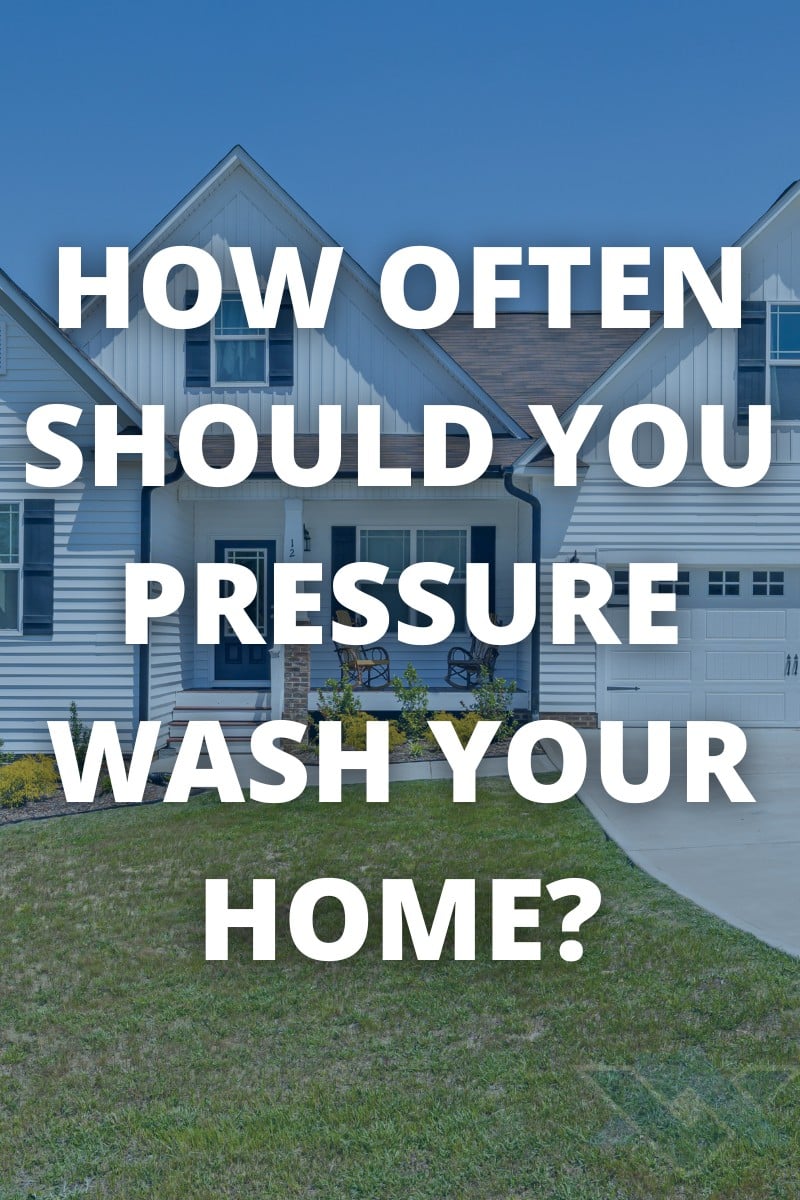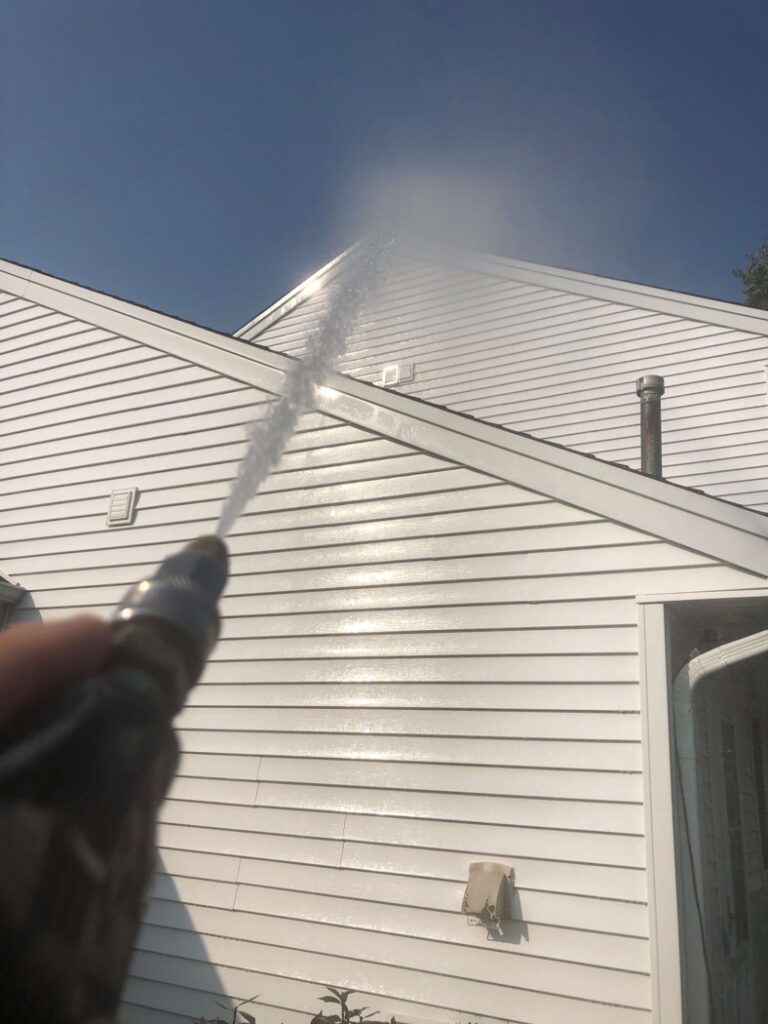How Often Should You Pressure Wash Your Home?
You just heard the engines shut down and you’re anxious to see the result of the pressure washing job that was just completed on your house. For years it’s been on the bucket list of things to get done but it was always difficult finding any free time to complete it. After it started getting noticeably worse with algae and mold you decided to hire it out.
Opening the door and slowly walking around your house you couldn’t believe your eyes. Everything was so white! The results were spectacular and much better than you had anticipated. How could something get so clean??!!!
You think to yourself “This would have taken me all day to complete this” and are incredibly happy. All the green is gone and the gutters and trim are as white as can be.
Opening the door and slowly walking around your house you couldn’t believe your eyes. Everything was so white! The results were spectacular and much better than you had anticipated. How could something get so clean??!!!
You think to yourself “This would have taken me all day to complete this” and are incredibly happy. All the green is gone and the gutters and trim are as white as can be.
After that initial surprise wears off, one of the first questions that typically gets asked is “How often should we do this?” OR “How often should you pressure wash your home?”. This is probably the number one question asked after any exterior cleaning job that is completed.
The answer can depend on numerous factors. However, the main factor is whether the home or business was soft washed or pressure washed.

Pressure Washing Or Soft Washing?
The traditional method for washing a house is washing with a pressure washer. To many people, this is the only known method to clean a building. Algae, grime, and dirt is washed off with high pressure. Twenty years ago, this was basically the only way to wash anything. You simply washed board by board with nothing but water coming out like a jet engine.
A typical 2,000 square foot house can take all day long to wash this way. It is very labor intensive, can be potentially dangerous to one’s self or the property, and the root cause is not addressed. I’ll briefly explain in the following paragraphs regarding these issues.
High Labor Cost
Washing a house with high pressure can take forever. Since you have to go board by board and make sure the pressure washer covers every square inch, this can obviously end up being a huge project. Any second or third story homes will almost certainly involve the use of a ladder. This can add a lot of time having to constantly move it around the property.
With the use of a ladder and inefficient cleaning methods, one can see how quickly the time spent can add up. Higher labor costs for a homeowner means less time doing what you want to do. Higher labor costs for a company adds to higher unnecessary prices due to other methods being more efficient.
Pressure Washing Can Be Dangerous
As mentioned above, pressure washing involves the use of a ladder on a lot of jobs. A decent sized pressure washer can have a lot of “kickback” when the trigger is pulled. This can throw someone off balance when standing on the ground. Being on a ladder is a recipe for disaster. One can easily fall off the ladder after that initial kickback and seriously get injured. Each year there are over 300 deaths resulting from ladders here in the United States.
Not only can this be dangerous for the operator but pressure washing can also be dangerous for the property itself. Siding was not made to withstand such extreme pressure. High pressure can leave permanent dents on the siding and lead to busted glass and windows. Leave the pressure washers for the concrete, which can tolerate higher PSI’s.
Pressure Washing Does Not Address The Cause
Usually when someone goes to wash their house, there is a reason for it. The house probably has algae or similar on the siding and gutters. With pressure washing, since you are cleaning with only water and high pressure, the organic growth does not end up getting killed.
There may be tiny specks of algae or mold that remain after the cleaning. Unless it is completely removed and treated, the problems and issues will come back much sooner than desired. Leaving a lot of the hidden growth alive will mean you’ll have to have this done again sooner than later, which will lead to higher costs in the long run.
Soft Washing Is The Preferred Method
You may be wondering, what exactly is soft washing? This preferred method of cleaning uses soaps and detergents to clean as opposed to high pressure. Everything is washed with low pressure and allows the chemicals to do the cleaning and not the use of potentially dangerous high pressure. It’s much safer for the property, it completely eliminates the root cause, and is a much quicker and efficient cleaning.
Lower Pressure is Much Safer For The Property
Low pressure takes most of the risk out of potential damage. With high pressure you run the risk of leaving permanent marks along the siding. On more sensitive siding, such as aluminum, this can be easily damaged and dented. Because of this, lower pressure is a must.
Another thing to consider is with high pressure you run the risk of removing the oxidation layer that is present on most siding. Over time the exterior of a building gets hit by sun and begins to fade the color a bit. If you take a pressure washer to this you can actually remove that layer and what you are left with are lines everywhere the pressure washer touched.
The only remedy for this is a oxidation removal restoration. This can be very expensive and a costly mistake in order to get the siding to look uniform again.
The Root Cause Is Addressed
With soft washing, you are cleaning with chemicals. When properly applied and rinsed, the chemicals will cover all of the siding and also treat areas that can not be seen. Soft washing treats the actual source with soaps, effectively killing it and having your siding basically starting from scratch again. You are essentially starting again with a clean palette. This is the big difference when one asks “How often should you pressure wash your home?”.


